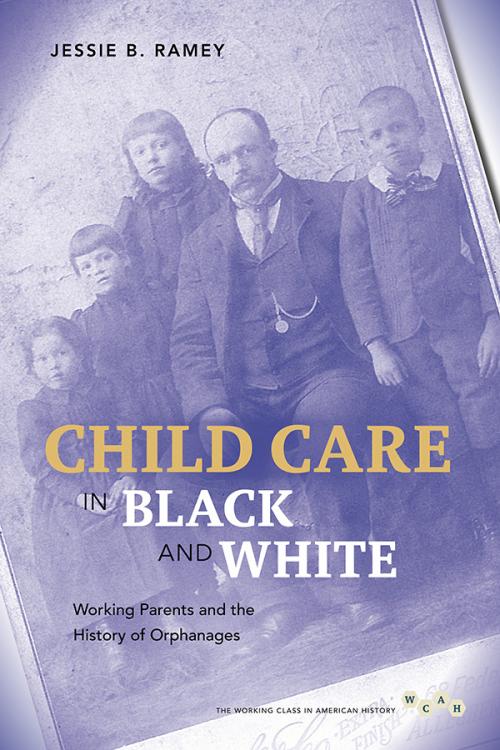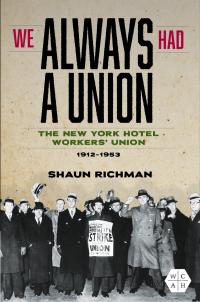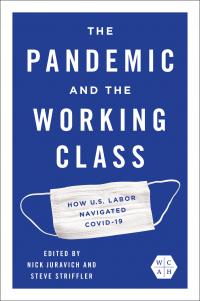
Child Care in Black and White
About the Book
This innovative study examines the development of institutional child care from 1878 to 1929, based on a comparison of two "sister" orphanages in Pittsburgh: the all-white United Presbyterian Orphan's Home and the all-black Home for Colored Children. Focusing on the agency of poor families who used these institutions in times of family crisis to meet their child care needs, Jessie B. Ramey explores the cooperation and conflict among working parents, children, orphanage managers, progressive reformers, staff members, and the broader community.Drawing on quantitative analysis of the records of more than 1,500 children living at the two orphanages, as well as census data, city logs, and contemporary social science surveys, this study investigates the intertwined hierarchies of gender, race, and class at the foundation of orphanage care. Raising new questions about the role of child care in constructing and perpetrating social inequality in the United States, Child Care in Black and White: Working Parents and the History of Orphanages provides insight into the lives of working-class families struggling to balance their wage labor and parenting responsibilities in a modernizing industrial economy.
About the Author
Jessie B. Ramey is an ACLS New Faculty Fellow in Women's Studies and History at the University of Pittsburgh.Reviews
"An important book that will appeal to all scholars interested in the histories of child welfare, the working class, or social welfare. Highly recommended."--Choice"Ramey's research contributes to greater understanding of working-class families in the early twentieth century and the flexibility and adaptability of child care institutions in response to the communities they serve."--Pennsylvania Magazine of History and Biography
"Jessie B. Ramey demonstrates why she is both a first-rate historian and writer."--Pittsburgh Post-Gazette
"A penetrating comparative investigation of the intertwined roles of class, race, and gender in child saving. . . . [Ramey] reveals how such racial and gendered ideas were first incorporated into practice and policy within these segregated realms, and why it still matters."--American Historical Review
"Child Care in Black and White is part of the University of Illinois Press’s superb ‘‘The Working Class in American History’’ series, and it effectively ties orphanages into a broad array of historical literatures, including but not limited to working-class life, African American life, and arguments about both motherhood and women’s work. . . . valuable to readers interested in families, children, poverty, labor, race, gender, and class in turn of the century America."--Journal of Family History
"Child Care in Black and White, Jessie B. Ramey’s study of two Pittsburgh orphanages, the United Presbyterian Orphan’s Home UPOH and the Home for Colored Children HCC, during the years 1878–1929, is an extraordinary contribution to the history of US orphanages and child care institutions. . . . a valuable resource in advanced child and family policy courses in social work. Students will learn from its complexity, its attention to both micro and macro issues, and its unusually strong example of mixed-method, historical research."--Social Service Review
"Ramey makes numerous contributions to our understanding of the role and operations of orphanages. This timely research informs debates about the limited public resources available to working parents for the well-being of their children, and Ramey repeatedly shows parents using the few instructions that did exist in ways that served their own purpose."--Journal of American History
Blurbs
"This book is an important contribution to the history of child welfare policy. Jessie B. Ramey's research illustrates the role racial segregation played in a northern industrialized city in child welfare policies for dependent children whose parents turned to orphanages for help."--Kriste Lindenmeyer, author of The Greatest Generation Grows Up: American Childhood in the 1930s
Awards
Herbert G. Gutman Prize, Labor and Working-Class History Association, 2010Lerner-Scott Prize in Women's History, Organization of American Historians, 2010
John Heinz Award, National Academy of Social Insurance, 2010










